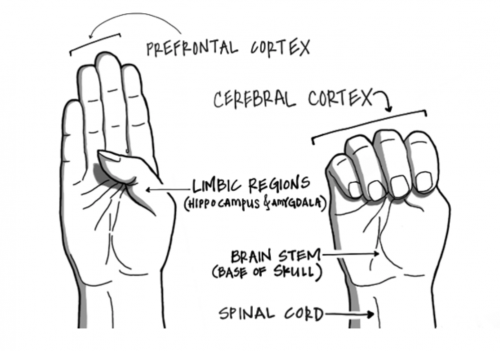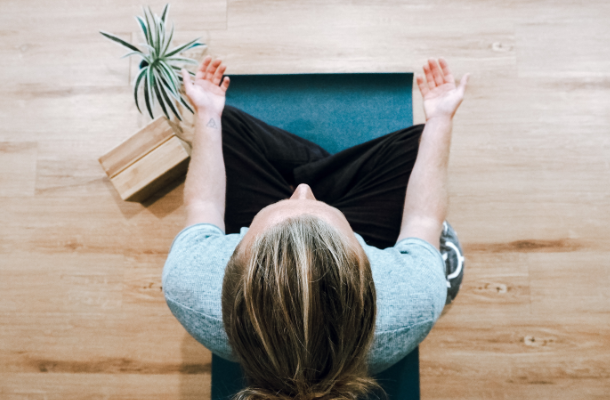Stress and Anxiety
What do we mean when we speak of stress?
The experience of stress typically manifests itself in feelings of being constantly aroused, finding it difficult to relax, being easily reactive and impatient, intolerant of interruption and delay. When we’re stressed, we feel the need to get on with the task at hand, and we don’t want people stopping us and asking questions that delay us.
The threat response that is triggered by stress evolved at a time when we regularly faced extreme, life threatening situations. These might include potential lack of food, the risk of attack from enemies, or being attacked by wild animals. In a world without supermarkets, police forces or hospitals, these were very real risks. There are of course major issues that can affect any of us, a serious injury, the loss of a loved one, divorce or separation, but generally our stressors nowadays tend to be much smaller in comparison.
But what situations cause us to feel stressed?
 Well, the answer is personal to each and every one of us, dependent upon what situations we perceive to be threatening. This doesn’t have to be threatening in a life or death sense, it can be something that we feel represents a threat to our sense of self, a situation in which we anticipate feeling foolish for example, or a deadline that we feel under pressure to meet. This increased sense of threat, be it real or perceived leads in the brain to activity in the amygdala and to the release of chemicals such as adrenaline, serotonin, noradrenaline and cortisol. These in turn can lead us into what you’ve probably heard referred to as the Flight / Fight / Freeze response. Less well known perhaps is the Tend and Befriend response which, more common in females, sees us taking care of those closest to us and seeking sources of support to cope with the stressful situation.
Well, the answer is personal to each and every one of us, dependent upon what situations we perceive to be threatening. This doesn’t have to be threatening in a life or death sense, it can be something that we feel represents a threat to our sense of self, a situation in which we anticipate feeling foolish for example, or a deadline that we feel under pressure to meet. This increased sense of threat, be it real or perceived leads in the brain to activity in the amygdala and to the release of chemicals such as adrenaline, serotonin, noradrenaline and cortisol. These in turn can lead us into what you’ve probably heard referred to as the Flight / Fight / Freeze response. Less well known perhaps is the Tend and Befriend response which, more common in females, sees us taking care of those closest to us and seeking sources of support to cope with the stressful situation.
Our over reaction to a perceived threat means we turn our attention and our energy into responses that reduce our capacity for clear thinking and for problem solving. We become more reactive, and less capable of creativity.
It’s also true however, that stress, in particular circumstances, can be good for us. It occurs whenever we’re about to do or accomplish something we’ve never done before, when we’re stretching our comfort zone and expanding our sense of who we are and what we can become. This positive stress is sometimes referred to as “Eustress”, and only becomes “Toxic Stress” when we reach a point whereby we simply cannot cope. Being here for any prolonged period of time can be seriously bad for your health, with cardio-vascular disease and depression just two possible outcomes.
What does anxiety feel like and how do you overcome it?
What is anxiety?
 It's more than just feeling stressed or worried. These are natural reactions we all feel at some stage, and they can be a good thing, however, anxiety is more debilitating, sometimes arising from excessive experience of stress.
It's more than just feeling stressed or worried. These are natural reactions we all feel at some stage, and they can be a good thing, however, anxiety is more debilitating, sometimes arising from excessive experience of stress.
While some anxiety can be context specific, you’re anxious about a specific event or environment, it can also be more general, leaving you feeling a pervasive anxiety in almost all areas of your life.
This constant anxiety feels like fear which doesn't go away, and if it becomes too intense it can take over your life and stop you doing normal everyday things.
Anxiety makes you feel worried all the time, tired and unable to concentrate. This can cause sleeping problems and can ultimately leave you feeling depressed.
There are often symptoms which affect the body too, such as a fast heartbeat or breathing, trembling, sweating, dizziness, diarrhoea and feeling sick.
Up to one in 10 people will have a problem with anxiety or phobias at some point in their lives - but many don't ask for treatment.
Where do I go for help?
 The Royal College of Psychiatrists suggests trying self-help techniques first, like:
The Royal College of Psychiatrists suggests trying self-help techniques first, like:
- talking to a friend or relative
- joining self-help or online support groups
- learning relaxation techniques
Activities such as yoga, exercise, mindfulness reading and listening to music can also help.
Experts say it's a good idea to cut down on alcohol and stop smoking to reduce anxiety.
If your anxiety persists, there are lots of self-help books on the best therapies, such as cognitive behavioural therapy (CBT), which is also provided on the NHS.
CBT is a talking therapy which helps people deal with overwhelming problems by breaking them down into smaller chunks. It is suitable for children with severe anxiety too, and parents can be taught how to do it.
It's important not to suffer in silence, and if you or someone you’re caring for is suffering, then you should book an appointment with a GP and explain your symptoms.
Are children and young people affected too?
 The unprecedented situation that we’ve experienced since the beginning of the Covid 19 pandemic has impacted on young people in many varied ways. While some are struggling, others are thriving because of a lack of pressure from school. For example, during the first month of lockdown there was an increase in feelings of unhappiness, anxiety and low mood among primary school children. However, parents of secondary age children reported fewer emotional problems, and teenagers themselves said their mood and behaviour hadn't changed.
The unprecedented situation that we’ve experienced since the beginning of the Covid 19 pandemic has impacted on young people in many varied ways. While some are struggling, others are thriving because of a lack of pressure from school. For example, during the first month of lockdown there was an increase in feelings of unhappiness, anxiety and low mood among primary school children. However, parents of secondary age children reported fewer emotional problems, and teenagers themselves said their mood and behaviour hadn't changed.
This is reflected in another survey of 13 to 14-year-olds, which found they were less anxious during lockdown than they had been in 2019, suggesting there is huge variation among children of different ages.
The NHS has five tips for supporting children and young people:
- Be there to listen: Ask them how they are regularly, so they get used to speaking about their feelings
- Stay involved in their life: Show interest in it and the things that are important to them
- Support positive routines: Be a positive role model and support regular bedtime routines, healthy eating and getting active
- Encourage their interests: Being active, creative, learning things and being a part of a team are all good for mental health
- Take what they say seriously: Help them feel valued in what they say, and help them work through difficult emotions
Who is most at risk?
Anxiety is a common condition and, at the moment, many people are feeling more anxious than usual about life. While any big changes or traumatic events, can make you prone to anxiety, it can also be little things that can leave you feeling this way.
Having a mental health problem can make you feel more anxious, as can having another illness, but how anxious you feel could also be down to the genes you inherit too.
Teenagers and young people often feel anxious, and those with special educational needs or from low income families are usually most vulnerable.
Understanding your brain – the neuroscience of stress
It’s often said, and with good reason, that knowledge is power. Understanding how the brain processes stress, which often evolves into the experience of anxiety, gives us the opportunity to take a different, more empowering position in relation to our experience.
Hand Model of the Brain – Dan Siegel
Dan Siegel's "Hand Model of the Brain" is a simple, yet profoundly powerful way of making sense of our brain's response to stress. (See video below).





